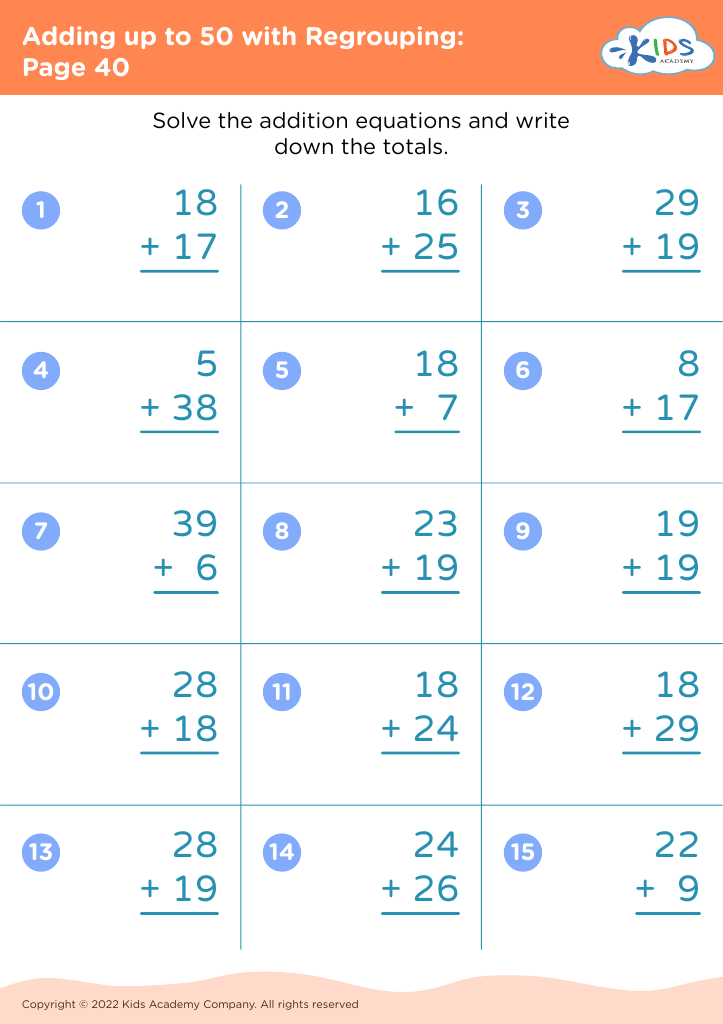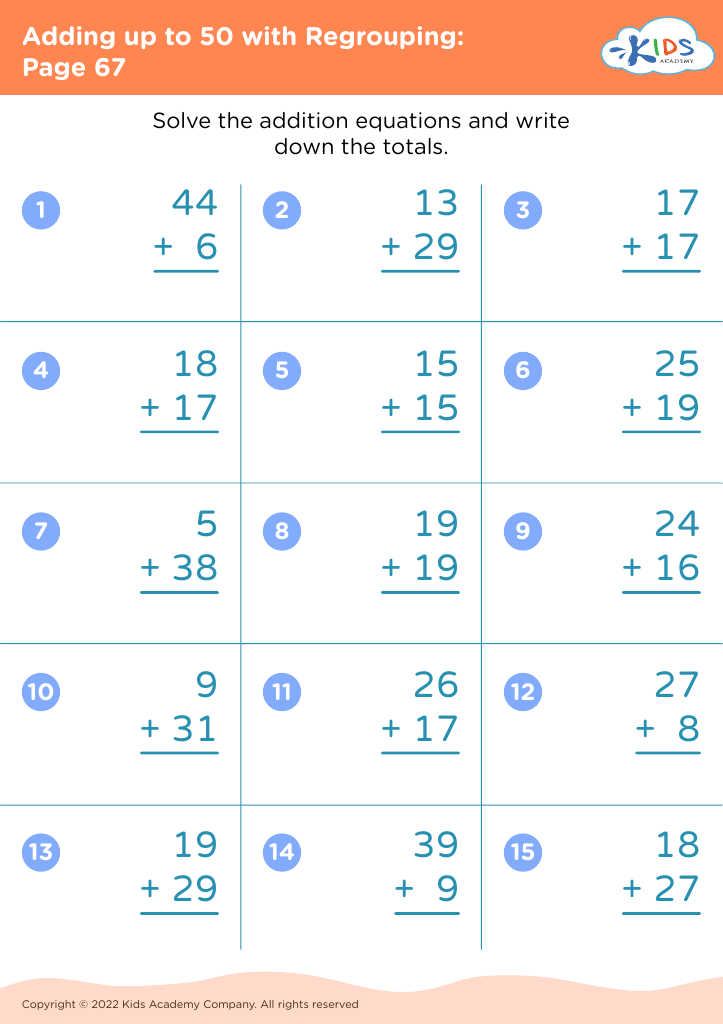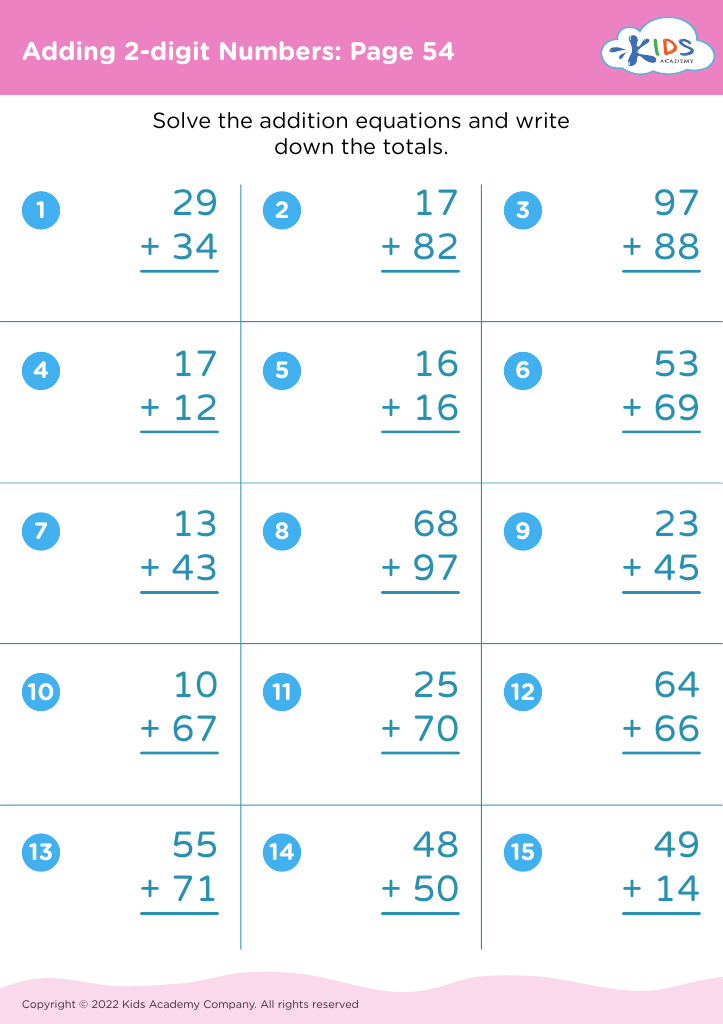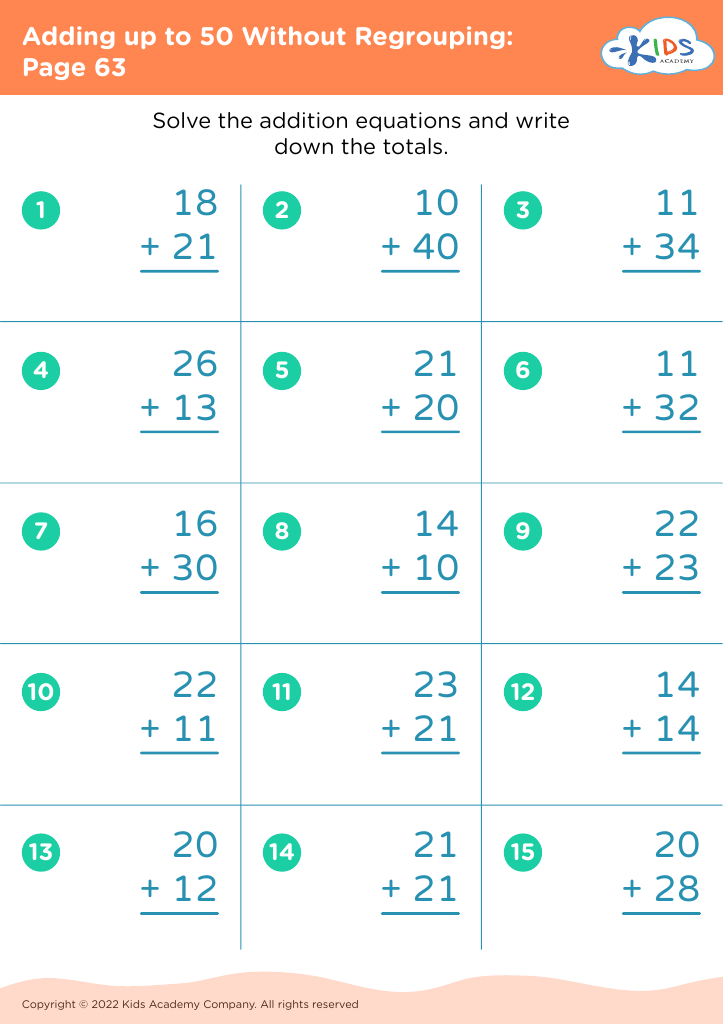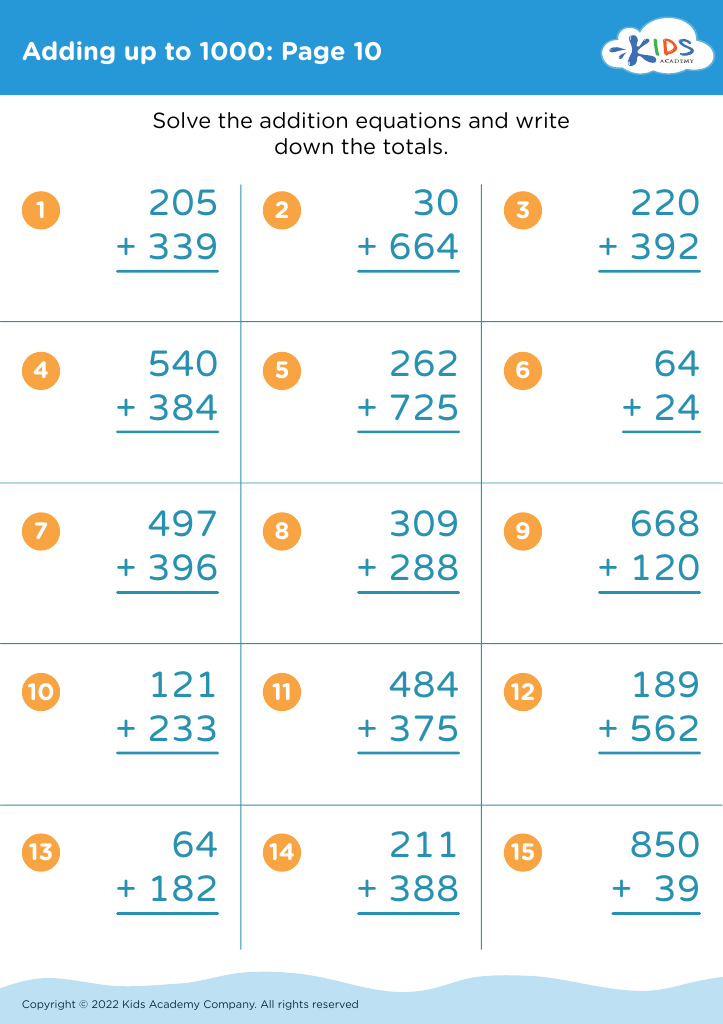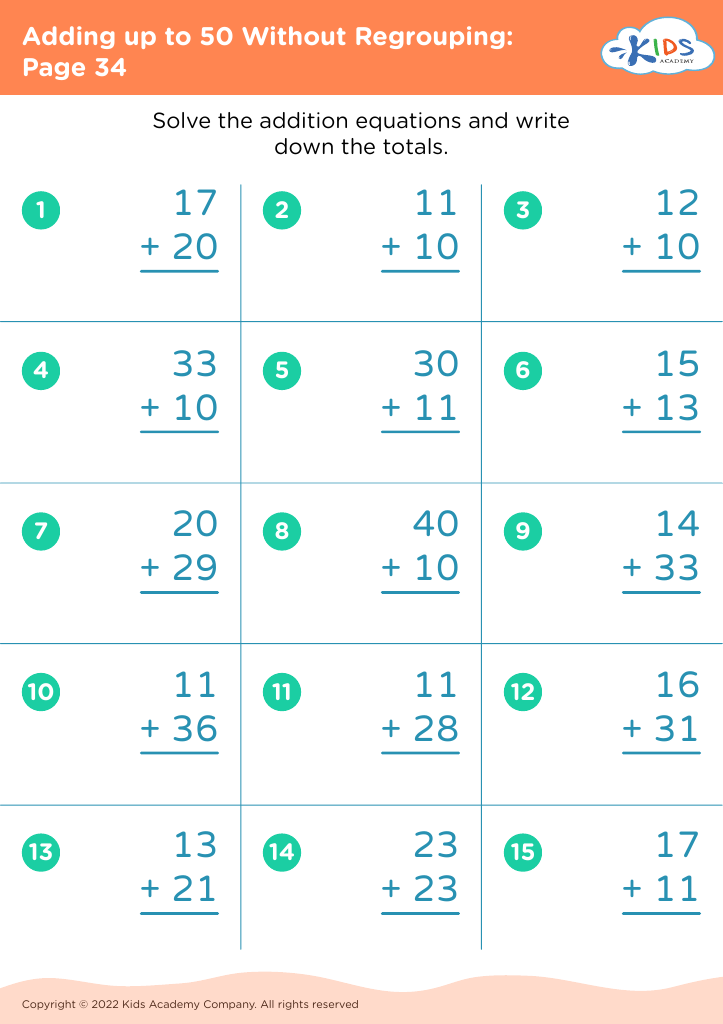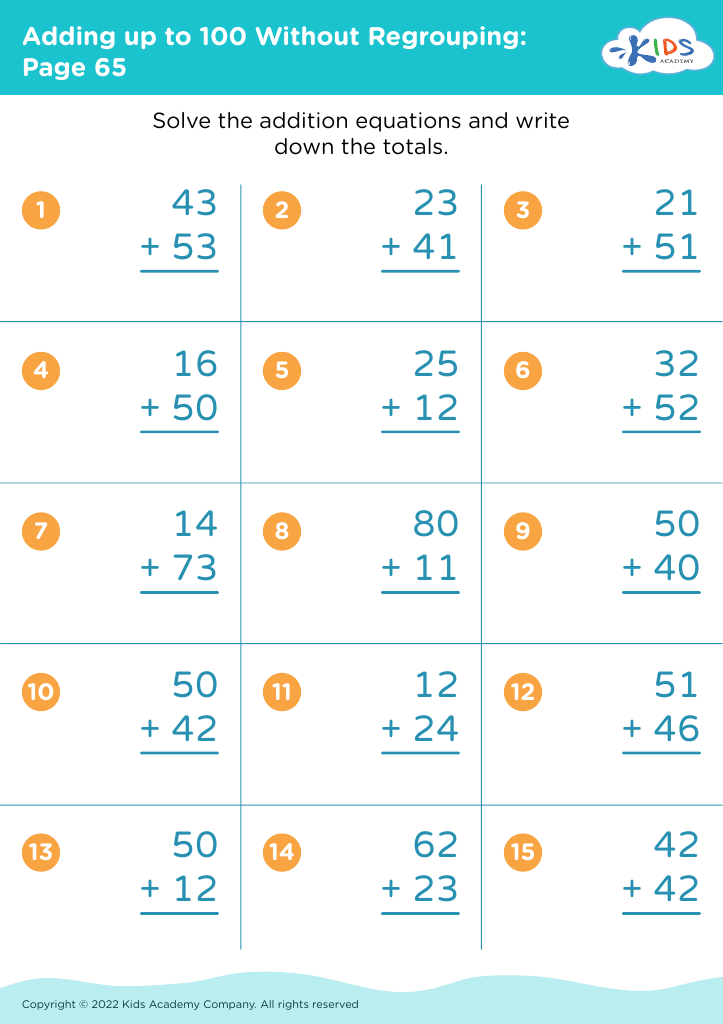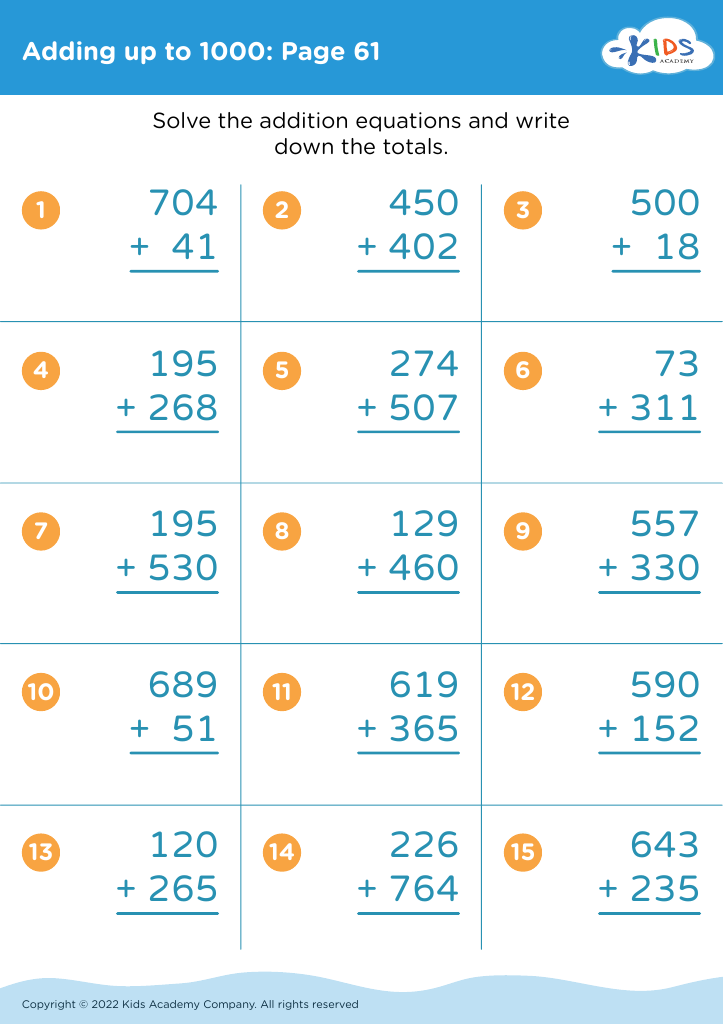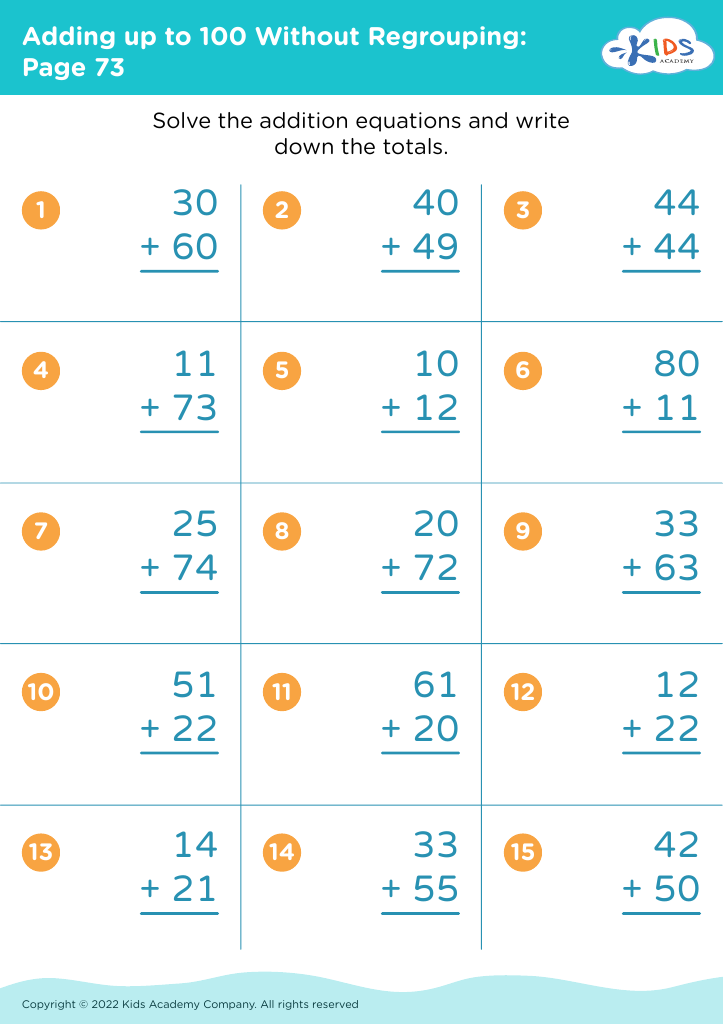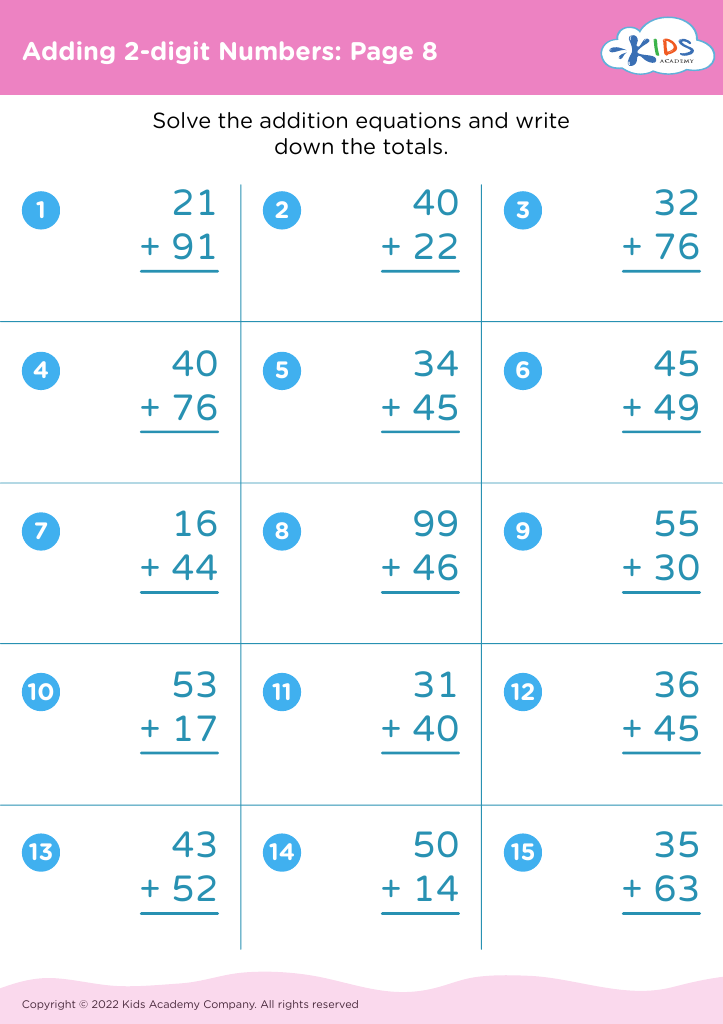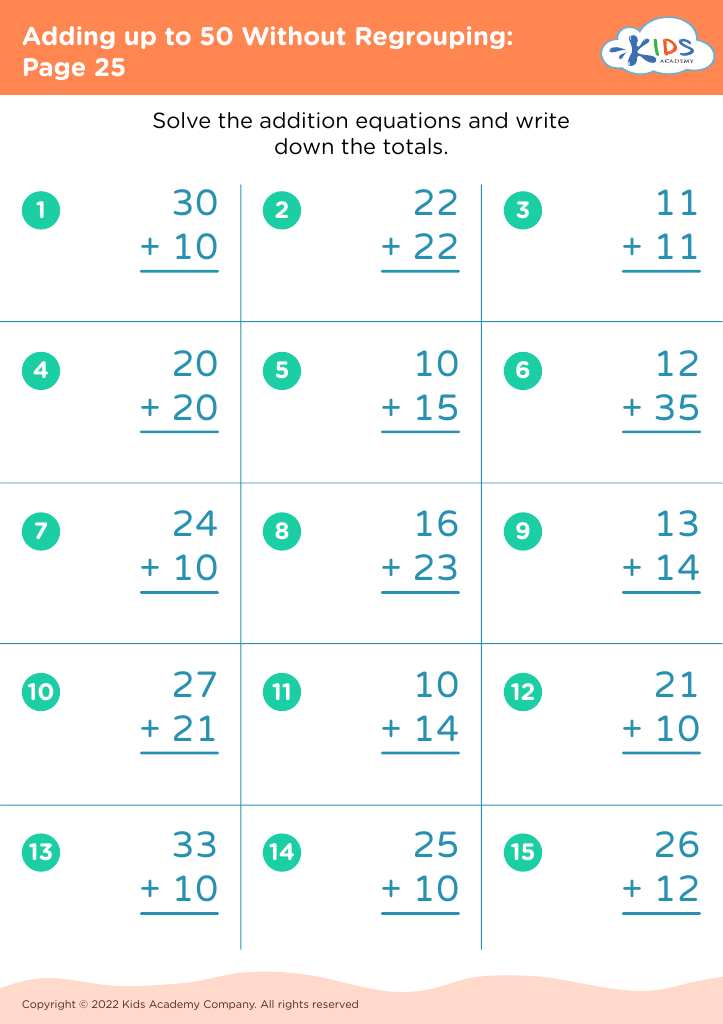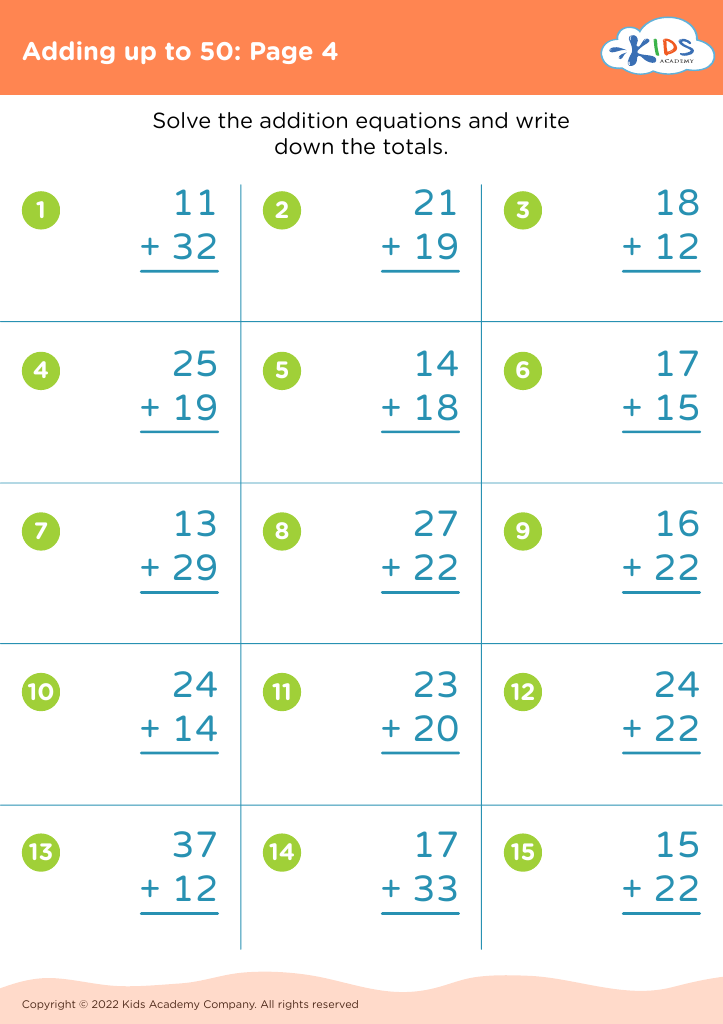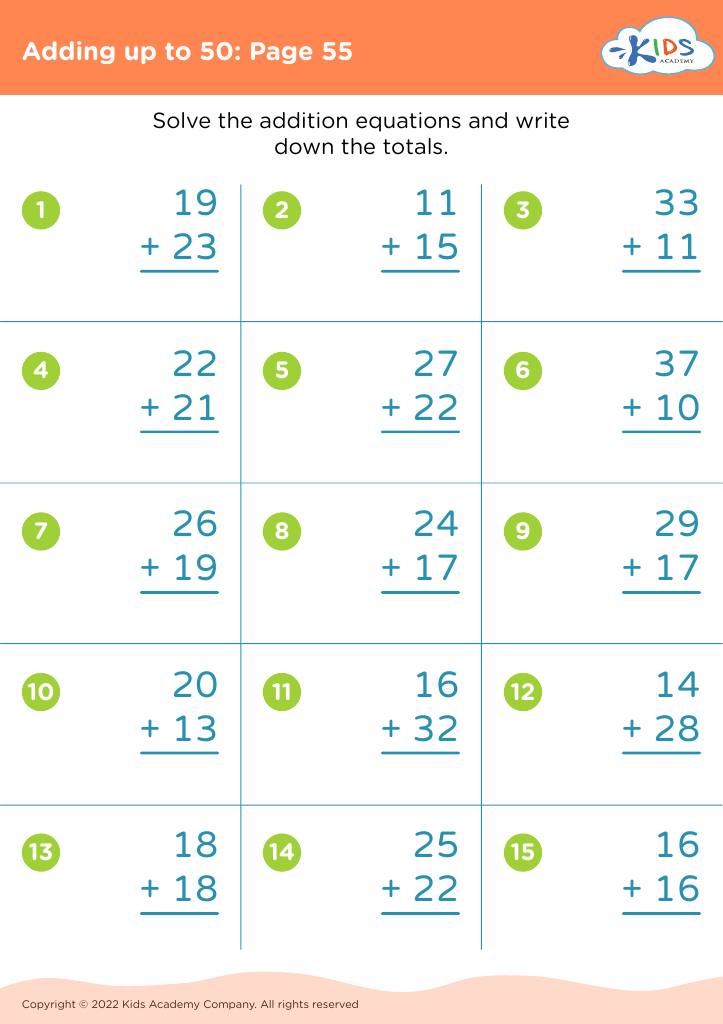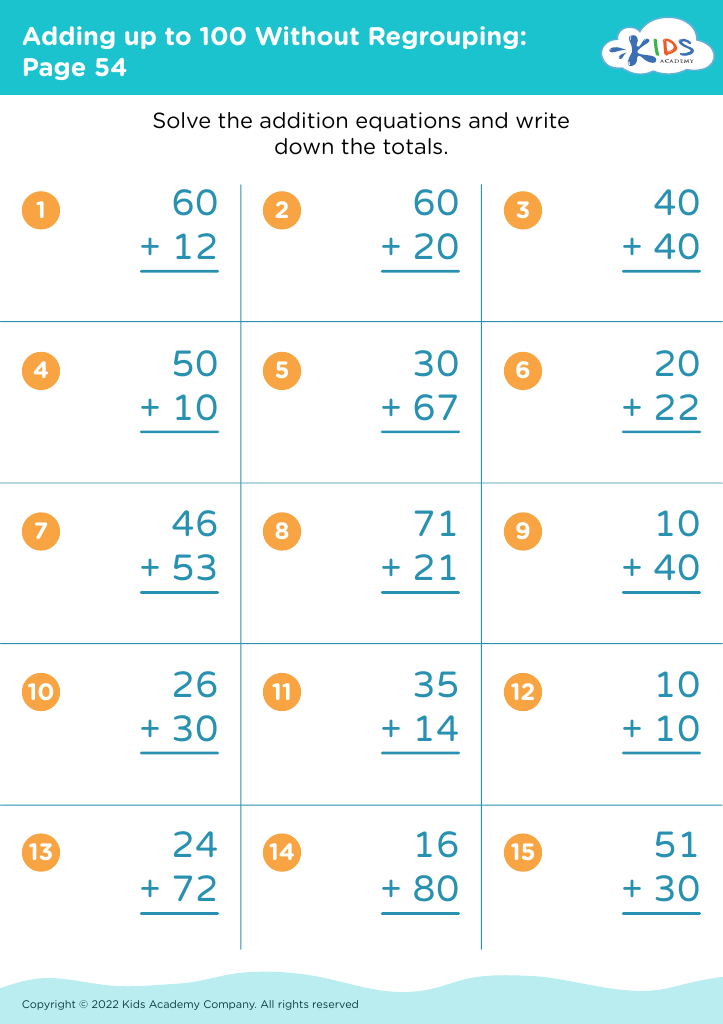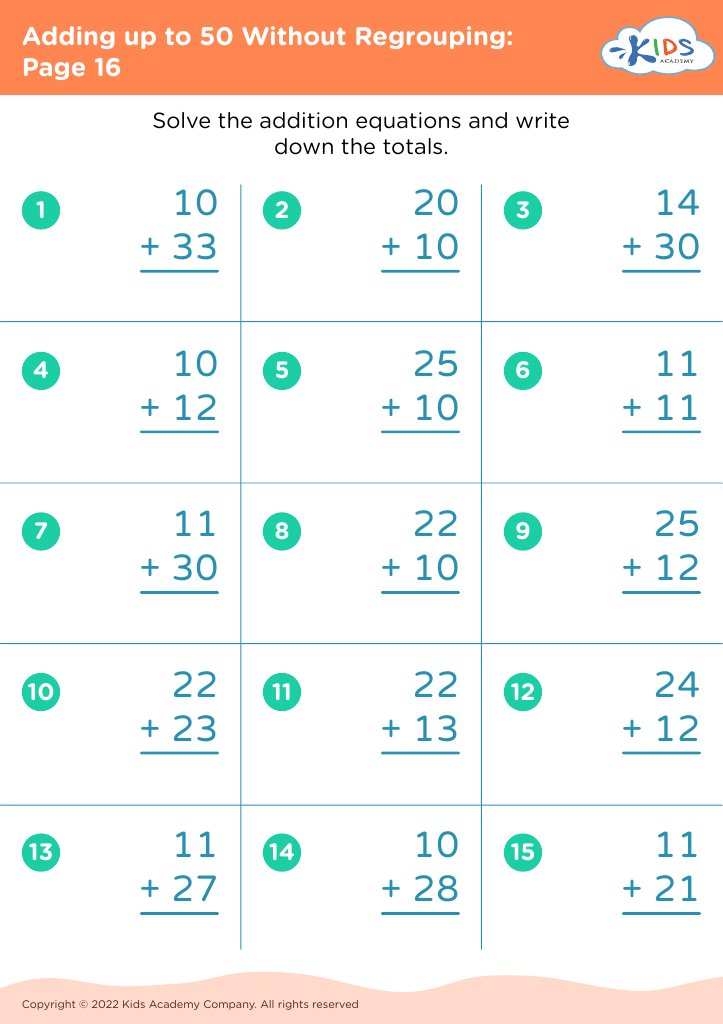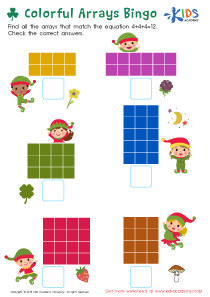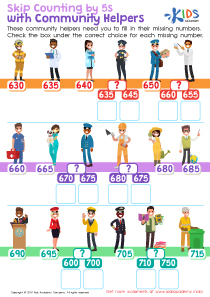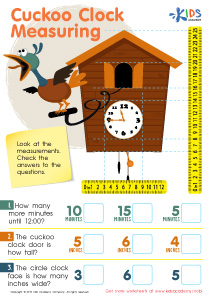Fraction simplification Grade 2 Math Worksheets
56 filtered results
-
From - To
Discover our engaging Fraction Simplification Worksheets designed for Grade 2 students! These worksheets aim to simplify learning by introducing young learners to the concept of fractions in an approachable way. By using colorful visuals and interactive exercises, children will practice reducing fractions to their simplest forms, enhancing their number sense and mathematical skills. Our carefully crafted worksheets offer a variety of problems that encourage critical thinking and promote a solid understanding of fractions. Perfect for classroom use or homework assignments, these resources will help your child build confidence in math. Download and inspire a love for learning fractions today!
Fraction simplification is a crucial concept in Grade 2 math that lays the foundation for understanding more complex mathematical ideas. Parents and teachers should care about this topic because it promotes essential skills that are important not only for academic success but also for everyday decision-making.
Firstly, simplifying fractions teaches children to recognize and understand relationships between numbers, enhancing their number sense. When students learn to simplify fractions, they develop problem-solving skills as they parse through how to make numbers smaller while maintaining equality. This helps foster critical thinking and analytical skills.
Secondly, simplification is foundational for future math concepts like equivalent fractions, addition, and subtraction of fractions. Mastery of these concepts early on increases students' confidence and encourages a positive attitude toward math.
Additionally, understanding fractions and their simplification has real-world applications, such as sharing food, cooking, and various tasks that involve measuring. When parents and teachers encourage students to grasp these concepts, they are equipping them with practical skills applicable outside the classroom.
Ultimately, emphasizing fraction simplification in Grade 2 helps cultivate both mathematical understanding and practical life skills, making it a vital focus for parents and educators alike.
